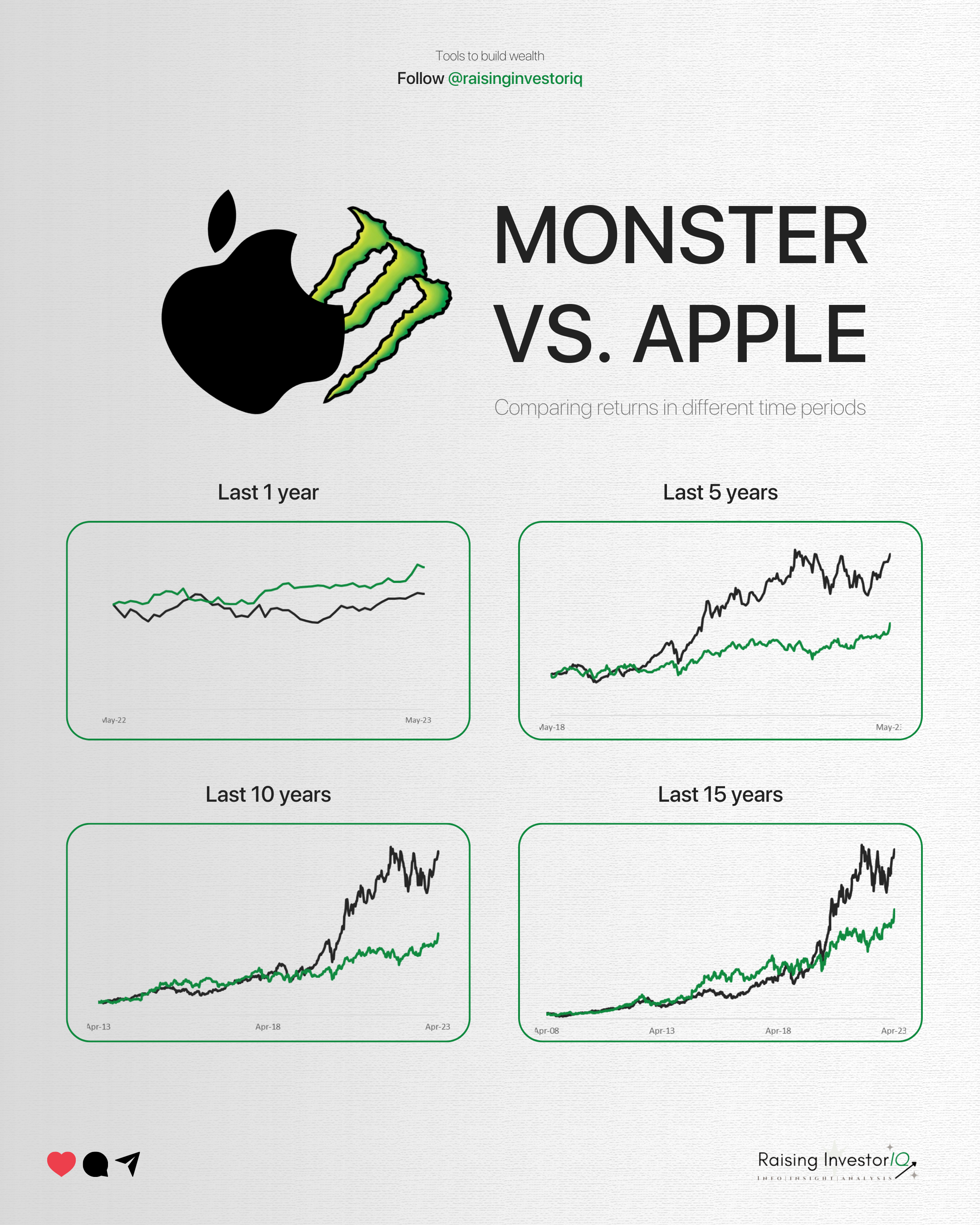DISCLOSURE: THIS POST MAY CONTAIN AFFILIATE LINKS, MEANING I GET A COMMISSION IF YOU DECIDE TO MAKE A PURCHASE THROUGH MY LINKS, AT NO COST TO YOU. PLEASE READ MY DISCLOSURE FOR MORE INFO.
Intro: Apple’s Success
Let’s examine Apple’s winning formula – the secret behind Apple’s success. Doing so reflects as a true pathway to discovering outstanding businesses.
A long time ago, I had a dream. Whether it was a sweet dream or a beautiful nightmare I’m not sure, but it did teach me an important lesson. Truth be told, without it, I wouldn’t have been able to beat the market.
Quality Endures, Mediocrity Crumbles
When you’re picking stocks, make sure you go for the best ones. I get it, this might be confusing. So, let me share one of my simplest strategies to find awesome companies, and it’s based on one simple principle – simplicity.
Simplicity and Apple’s Success
Whether you want to believe it or not, simple things work. Especially in money management. Investing is mentally challenging enough. You don’t need to stretch yourself by trying to make sense of complex business models. If you’re still here, you’re probably wondering.

How Do I Find Simple Businesses Then?
Here are 3 solid but powerful ideas.
- Seek out timeless products or services: Consider businesses that provide products or services that have stood the test of time. These enduring offerings often cater to fundamental human needs and possess simplicity in their essence.
- Explore industries with stable demand: Identify industries that offer consistent and stable demand for products or services. These industries tend to have simpler business dynamics and lower volatility.
- Look for businesses with a narrow focus: Seek out companies that specialize in a specific product or service rather than those with a broad range of offerings. Simplifying the business focus can lead to clarity and efficiency.
Hence, the underlying rules for Apple’s success. If you’ve ever studied Warren Buffett to any extent, you recognize that seeking out simple business models for investment is a core principle of his. It lends value to your investment strategy. I want to make sure you truly understand why this is important. And what better way to learn than through an example.
The Case of Apple
Apple’s success can be attributed, in large part, to its unwavering dedication to simplicity.
One of Apple’s defining characteristics is its commitment to minimalist product design. Their devices, such as the iPhone and MacBook, exhibit sleek lines, clean interfaces, and a focus on essential features.
Apple’s business model also reflects a commitment to simplicity. Through vertical integration, Apple controls both hardware and software components, ensuring seamless compatibility and optimized performance across its product line. This approach has not only earned Apple a loyal customer base but has also translated into remarkable stock price growth and amazing free cash flow.

A $10,000 investment in Apple a decade ago, would be worth $85,549.35 today!
Even the great Warren Buffett recently said on that Apple Inc is a better business than any other in Berkshire Hathaway Inc’s portfolio. And quite fittingly, Apple’s business model conforms to Buffett’s principle of investing in simplistic businesses. Apple’s success has very much aided in Buffett’s success. Check out this article on Warren Buffett’s 9 Essential Rules for Running a Business.
Conclusion
I want you to know that investing doesn’t need to be complicated. Sometimes, the simplest strategies and businesses can yield the most remarkable results.
So, stay focused, stay true to the principle of simplicity, and embark on your investment journey with confidence. Wishing you success in your investment endeavors.
When you’re ready, join my newsletter and get equipped with free tools and knowhow to build wealth and financial security.
Disclosure/Disclaimer
The information provided on this site is based on my own personal experience, research, and analysis, and it is not to be construed as professional advice. Please conduct your own research before making any investment decisions. I am not a professional financial advisor, stockbroker, or planner, nor am I a CPA or a CFP. The contents of this site and the resources provided are for informational and entertainment purposes only and do not constitute financial, accounting, or legal advice. The author is not liable for any losses or damages related to actions or failure to act related to the content on this website.


